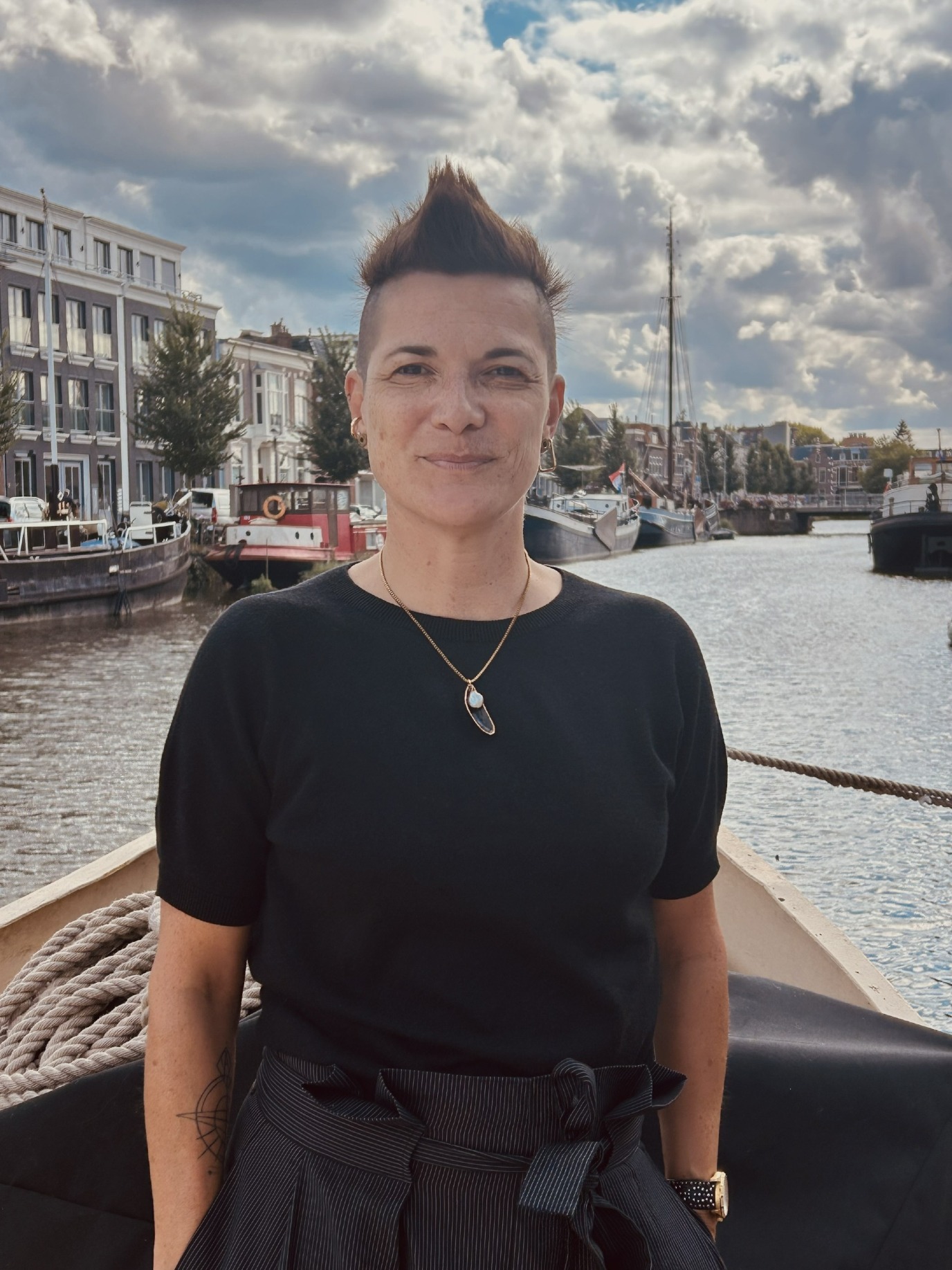Universities in the 21st century: Real change comes from the bottom up

A future-proof university cannot exist without anarchist and utopian thinking. That is what Elke Van Dermijnsbrugge, researcher and lecturer at NHL Stenden and specialist in educational science and radical change, argues. On October 27, she will be the keynote speaker during the event ‘Make it happen’ at House of Connections. There, participants will discuss the role and relevance of the university in the 21st century. Van Dermijnsbrugge: ‘What is really at stake if we decide to do things differently from the bottom up?’
Text: Jelle Posthuma
Van Dermijnsbrugge worked in international education for many years and has long been active as a researcher in higher education. Her research focuses on speculative and utopian thinking. How can collaboration from the bottom up, for instance within a university, make change possible? ‘Given my background, it is of course very interesting to talk about the future of education,’ she explains.
During her keynote, Van Dermijnsbrugge does not want to lapse into doom-and-gloom thinking about the future of higher education. ‘We’re already good enough at that. I want to turn it around. Together, we’ll sketch how the university could look in 2055 and develop strategies to get there. I call that a provocative, positive stimulus. How can we work from our current context toward a better version? That is realistic utopian thinking.’
Hyper-quantification
At the same time, Van Dermijnsbrugge acknowledges today’s challenges. According to her, there are major underlying problems. For example, she sees a strong urge in education – not only at universities – to measure everything. ‘We are dealing with hyper-quantification. Students’ performances are linked to the economic growth of a country: the better we perform numerically, the better it is for the economy. But this has major consequences for students’ learning experiences and the role of teachers. What can’t be measured doesn’t count.’
This is closely tied to another development in higher education: the commercialization of universities. ‘People and programs have become products. The large budgets for marketing departments illustrate that problem. Of course, student numbers are declining and institutions need to secure their survival, but my concern is with the discourse: the way we talk about students and programs.’ Nowadays, she says, line managers work at universities. That, according to the researcher, is telling: ‘It’s about how we perceive education. Is it a product or a basic right?’
Moral Responsibility
Finally, Van Dermijnsbrugge points to the increasing pressure on academic freedom. ‘Critical thinking is wearing down. There is a lot of polarization in society: students and lecturers prefer to avoid difficult political conversations. But debate – the respectful disagreement with one another – is crucial. It is something we must train ourselves in. Universities bear both an ethical and a moral responsibility. In today’s world, the call for institutions to take a clear moral position is unmistakable.’
This, she argues, also calls for closer collaboration with society. ‘At the University of Groningen there are wonderful examples, such as at Campus Fryslân, where people truly work together with the community. But that remains the exception rather than the rule, meaning universities often end up distanced from society.’
Collective Imagination
So how do we turn the tide? According to Van Dermijnsbrugge, radical imagination is needed. ‘Humans have imagination; that’s what distinguishes us from other species. Our society is the result of collective imagination.’ If lecturers and students at universities tap into their collective imagination, she believes this can lead to radical change. Many things exist simply because “that’s just how it’s done.” But what is really at stake if we decide to do it differently? I often use the example of the introduction of the euro: at exactly midnight we collectively switched from the guilder to the euro. That was made possible by radical imagination.’
Utopian thinking and radical imagination can help bring about change. But how do we actually set that change in motion? Van Dermijnsbrugge emphasizes the importance of consensus. ‘At the moment, there is mostly majority thinking: if the majority supports something, we proceed. That’s very black-and-white. Consensus is much more constructive: different parties negotiate and arrive at ideas everyone can agree on.’ But she acknowledges that seeking consensus takes time. ‘There’s too little time to really delve into issues, to reach consensus. This applies to both lecturers and students. The workload and pace are too high.’
Boycotting
An anarchist philosophy of organization can help reduce workload, Van Dermijnsbrugge suggests. ‘People sometimes associate the word anarchism negatively – as if it’s only about rioters who set things on fire and throw bombs. But that’s a simplistic image. It’s about how we, from the bottom up – as students and lecturers – organize ourselves to achieve change. That’s very different from a policy document imposed from above.’
As an example, she mentions the possibility of boycotting. ‘The term boycott is heavily charged, but it doesn’t have to be. I often use email as an example. We collectively impose enormous workload on each other by replying quickly and at late hours. Suppose we all started answering emails only two or three days later. How often is something truly urgent? This resets people’s expectations and slows the system down. If we do it collectively, we can change something.’
The keynote will take place on October 27 at House of Connections during the event Make it happen: Fellows accelerating change together. After the lecture, there will be two rounds of table discussions, where experts and participants will explore themes such as education, work, and global crises in the university of the 21st century, guided by various moderators. The day will also include moments of reflection, a shared lunch, and will conclude with a networking reception.
The event is organized by the Rudolf Agricola School for Sustainable Development. More information can be found on the School’s website.
More news
-
15 September 2025
Successful visit to the UG by Rector of Institut Teknologi Bandung

